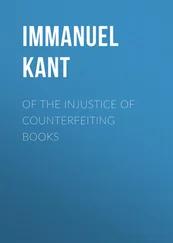We must, however, omit the consideration of these important subjects, the development of which is in reality the peculiar duty and dignity of philosophy, and confine ourselves for the present to the more humble but not less useful task of preparing a firm foundation for those majestic edifices of moral science. For this foundation has been hitherto insecure from the many subterranean passages which reason in its confident but vain search for treasures has made in all directions. Our present duty is to make ourselves perfectly acquainted with the transcendental use made of pure reason, its principles and ideas, that we may be able properly to determine and value its influence and real worth. But before bringing these introductory remarks to a close, I beg those who really have philosophy at heart — and their number is but small — if they shall find themselves convinced by the considerations following as well as by those above, to exert themselves to preserve to the expression idea its original signification, and to take care that it be not lost among those other expressions by which all sorts of representations are loosely designated — that the interests of science may not thereby suffer. We are in no want of words to denominate adequately every mode of representation, without the necessity of encroaching upon terms which are proper to others. The following is a graduated list of them. The genus is representation in general (representation. Under it stands representation with consciousness (perceptio). A perception which relates solely to the subject as a modification of its state, is a sensation (sensatio), an objective perception is a cognition (cognitio). A cognition is either an intuition or a conception (intuitus vel conceptus). The former has an immediate relation to the object and is singular and individual; the latter has but a mediate relation, by means of a characteristic mark which may be common to several things. A conception is either empirical or pure. A pure conception, in so far as it has its origin in the understanding alone, and is not the conception of a pure sensuous image, is called notio. A conception formed from notions, which transcends the possibility of experience, is an idea, or a conception of reason. To one who has accustomed himself to these distinctions, it must be quite intolerable to hear the representation of the colour red called an idea. It ought not even to be called a notion or conception of understanding.
40 He certainly extended the application of his conception to speculative cognitions also, provided they were given pure and completely a priori , nay, even to mathematics, although this science cannot possess an object otherwhere than in Possible experience. I cannot follow him in this, and as little can I follow him in his mystical deduction of these ideas, or in his hypostatization of them; although, in truth, the elevated and exaggerated language which he employed in describing them is quite capable of an interpretation more subdued and more in accordance with fact and the nature of things.
Section II. Of Transcendental Ideas.
Table of Contents
Transcendental analytic showed us how the mere logical form of our cognition can contain the origin of pure conceptions a priori , conceptions which represent objects antecedently to all experience, or rather, indicate the synthetical unity which alone renders possible an empirical cognition of objects. The form of judgements — converted into a conception of the synthesis of intuitions — produced the categories which direct the employment of the understanding in experience. This consideration warrants us to expect that the form of syllogisms, when applied to synthetical unity of intuitions, following the rule of the categories, will contain the origin of particular a priori conceptions, which we may call pure conceptions of reason or transcendental ideas, and which will determine the use of the understanding in the totality of experience according to principles.
The function of reason in arguments consists in the universality of a cognition according to conceptions, and the syllogism itself is a judgement which is determined a priori in the whole extent of its condition. The proposition: “Caius is mortal,” is one which may be obtained from experience by the aid of the understanding alone; but my wish is to find a conception which contains the condition under which the predicate of this judgement is given — in this case, the conception of man — and after subsuming under this condition, taken in its whole extent (all men are mortal), I determine according to it the cognition of the object thought, and say: “Caius is mortal.”
Hence, in the conclusion of a syllogism we restrict a predicate to a certain object, after having thought it in the major in its whole extent under a certain condition. This complete quantity of the extent in relation to such a condition is called universality (universalitas). To this corresponds totality (universitas) of conditions in the synthesis of intuitions. The transcendental conception of reason is therefore nothing else than the conception of the totality of the conditions of a given conditioned. Now as the unconditioned alone renders possible totality of conditions, and, conversely, the totality of conditions is itself always unconditioned; a pure rational conception in general can be defined and explained by means of the conception of the unconditioned, in so far as it contains a basis for the synthesis of the conditioned.
To the number of modes of relation which the understanding cogitates by means of the categories, the number of pure rational conceptions will correspond. We must therefore seek for, first, an unconditioned of the categorical synthesis in a subject; secondly, of the hypothetical synthesis of the members of a series; thirdly, of the disjunctive synthesis of parts in a system.
There are exactly the same number of modes of syllogisms, each of which proceeds through prosyllogisms to the unconditioned — one to the subject which cannot be employed as predicate, another to the presupposition which supposes nothing higher than itself, and the third to an aggregate of the members of the complete division of a conception. Hence the pure rational conceptions of totality in the synthesis of conditions have a necessary foundation in the nature of human reason — at least as modes of elevating the unity of the understanding to the unconditioned. They may have no valid application, corresponding to their transcendental employment, in concreto, and be thus of no greater utility than to direct the understanding how, while extending them as widely as possible, to maintain its exercise and application in perfect consistence and harmony.
But, while speaking here of the totality of conditions and of the unconditioned as the common title of all conceptions of reason, we again light upon an expression which we find it impossible to dispense with, and which nevertheless, owing to the ambiguity attaching to it from long abuse, we cannot employ with safety. The word absolute is one of the few words which, in its original signification, was perfectly adequate to the conception it was intended to convey — a conception which no other word in the same language exactly suits, and the loss — or, which is the same thing, the incautious and loose employment — of which must be followed by the loss of the conception itself. And, as it is a conception which occupies much of the attention of reason, its loss would be greatly to the detriment of all transcendental philosophy. The word absolute is at present frequently used to denote that something can be predicated of a thing considered in itself and intrinsically. In this sense absolutely possible would signify that which is possible in itself (interne)- which is, in fact, the least that one can predicate of an object. On the other hand, it is sometimes employed to indicate that a thing is valid in all respects — for example, absolute sovereignty. Absolutely possible would in this sense signify that which is possible in all relations and in every respect; and this is the most that can be predicated of the possibility of a thing. Now these significations do in truth frequently coincide. Thus, for example, that which is intrinsically impossible, is also impossible in all relations, that is, absolutely impossible. But in most cases they differ from each other toto caelo, and I can by no means conclude that, because a thing is in itself possible, it is also possible in all relations, and therefore absolutely. Nay, more, I shall in the sequel show that absolute necessity does not by any means depend on internal necessity, and that, therefore, it must not be considered as synonymous with it. Of an opposite which is intrinsically impossible, we may affirm that it is in all respects impossible, and that, consequently, the thing itself, of which this is the opposite, is absolutely necessary; but I cannot reason conversely and say, the opposite of that which is absolutely necessary is intrinsically impossible, that is, that the absolute necessity of things is an internal necessity. For this internal necessity is in certain cases a mere empty word with which the least conception cannot be connected, while the conception of the necessity of a thing in all relations possesses very peculiar determinations. Now as the loss of a conception of great utility in speculative science cannot be a matter of indifference to the philosopher, I trust that the proper determination and careful preservation of the expression on which the conception depends will likewise be not indifferent to him.
Читать дальше












